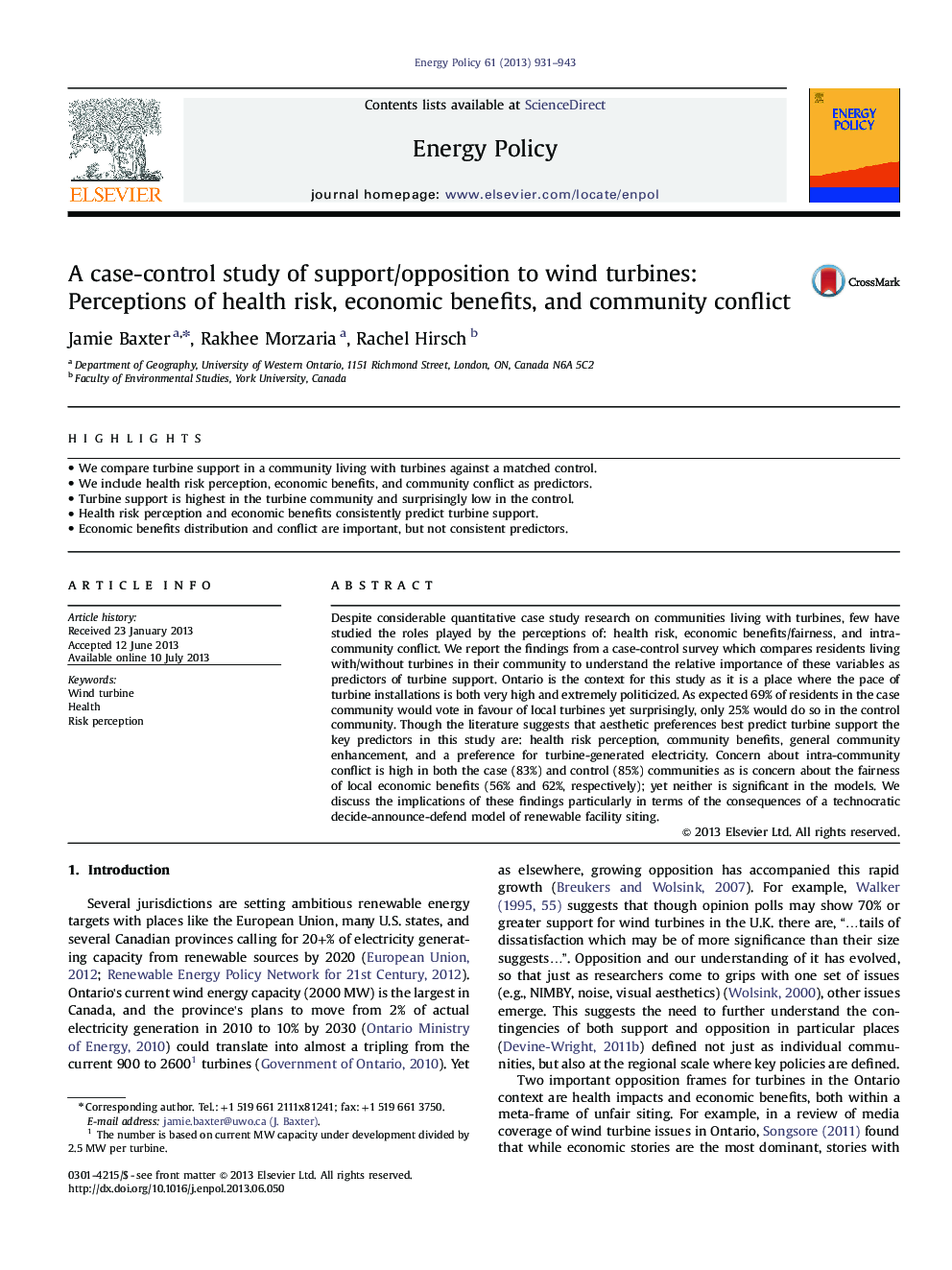| Article ID | Journal | Published Year | Pages | File Type |
|---|---|---|---|---|
| 7405002 | Energy Policy | 2013 | 13 Pages |
Abstract
Despite considerable quantitative case study research on communities living with turbines, few have studied the roles played by the perceptions of: health risk, economic benefits/fairness, and intra-community conflict. We report the findings from a case-control survey which compares residents living with/without turbines in their community to understand the relative importance of these variables as predictors of turbine support. Ontario is the context for this study as it is a place where the pace of turbine installations is both very high and extremely politicized. As expected 69% of residents in the case community would vote in favour of local turbines yet surprisingly, only 25% would do so in the control community. Though the literature suggests that aesthetic preferences best predict turbine support the key predictors in this study are: health risk perception, community benefits, general community enhancement, and a preference for turbine-generated electricity. Concern about intra-community conflict is high in both the case (83%) and control (85%) communities as is concern about the fairness of local economic benefits (56% and 62%, respectively); yet neither is significant in the models. We discuss the implications of these findings particularly in terms of the consequences of a technocratic decide-announce-defend model of renewable facility siting.
Keywords
Related Topics
Physical Sciences and Engineering
Energy
Energy Engineering and Power Technology
Authors
Jamie Baxter, Rakhee Morzaria, Rachel Hirsch,
